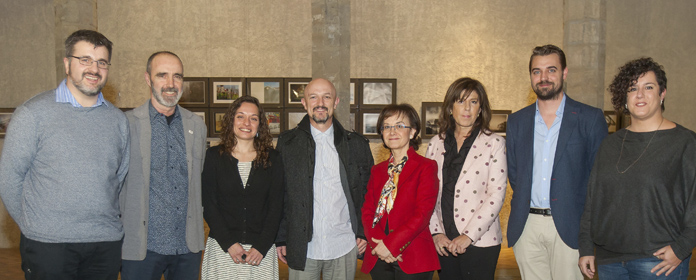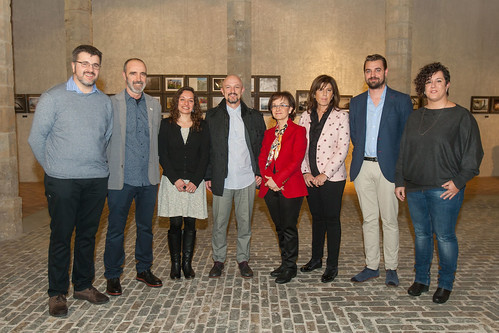"We must prevent our children from being digital orphans."
The anthropologist Óscar Pérez bet on accompaniment as prevention at a workshop on new addictions organized by the University of Navarra.

"There is a lot of talk about digital natives, our children were born into a world of screens, but what we find in the prevention workshops of project Hombre La Rioja, is quite the opposite, we come across digital orphans". According to Óscar Pérez Escribano, anthropologist and social educator at project Hombre de la Rioja, who intervened in a workshop with the degree scroll "Addictions 3.0: interdisciplinary challenges in the face of new dependencies"organized by the School of Education and Psychology, there are many children and adolescents who "are not accompanied and are moving in a very rich, very creative and positive world, but, at the same time, very complicated and with risks such as the digital world". According to the expert, parents should not ignore this task and think that their children know more than they do, as this would mean "neglecting our responsibility as parents: we teach them to ride a bike, we accompany them to high school, we take them to English, and in this part, which is the most problematic part today, we leave them alone".
As he explained in the interdisciplinary roundtable in which he participated, part of the work done in prevention at project Hombre La Rioja has to do with the training of parents "in the first session we ask them to install instagram on their cell phones, because it seems to us that if parents want to understand their children, what they like, what a like or a dislike means, what this social network represents, the only way is to experience it, to live it". According to the social educator, parents must create common spaces with their children, places where they can meet,"if I don't know who Rubius (a famous Spanish youtuber ) is, I won't be able to talk to my child about him, nor will I be able to influence this training". For Pérez Escribano, this approach must be made from a non-judgmental perspective, without demonizing, and trying to understand that this is the world of young people, "which was not ours and probably never will be, but it is a world we have to approach. We have to build bridges, communication links, and these bridges, today, if we do not understand the digital world, we cannot create them".
The roundtable was moderated by psychologist David Ramirez, and was completed by Juan José Lamas Alonso, technical director of the Spanish Federation of Rehabilitated Gamblers(FEJAR), Vanesa Gargallo, psychologist of the association of Gamblers of Navarra ARALAR, Conchi Mateo, member of the group of Civic Education , integrated within the group for Coexistence, which is a service of the Municipal Police of Pamplona focused on providing preventive sessions in schools of Primary Education , ESO, high school program and FP, both the student body and the faculty and families, and Lore Orozko, counselor IES Mendillorri, teacher and psychopedagogue.
The workshop, which had a full capacity, also counted with the lecture of the Full Professor of the University of Valencia, Mariano Chóliz, who spoke about the addictions to online games, and pointed out the accessibility as one of the keys for any addiction "it already happened in the year 77 with the legalization of the game, with the slot machines, which are very accessible and are in any cafeteria; and this effect has been perceived again with the legalization of the online game nowadays". According to the expert, the explosion of supply has led to the emergence of a new profile player, "the traditional profile still exists, which is the slot machine player, but there is now a profile of a younger person, generally male, under 35 years old, who plays mainly online: not only through the computer or cell phone, but also on the betting machine games in bars, which are played through the Internet. Online gambling has already become a public health problem".

